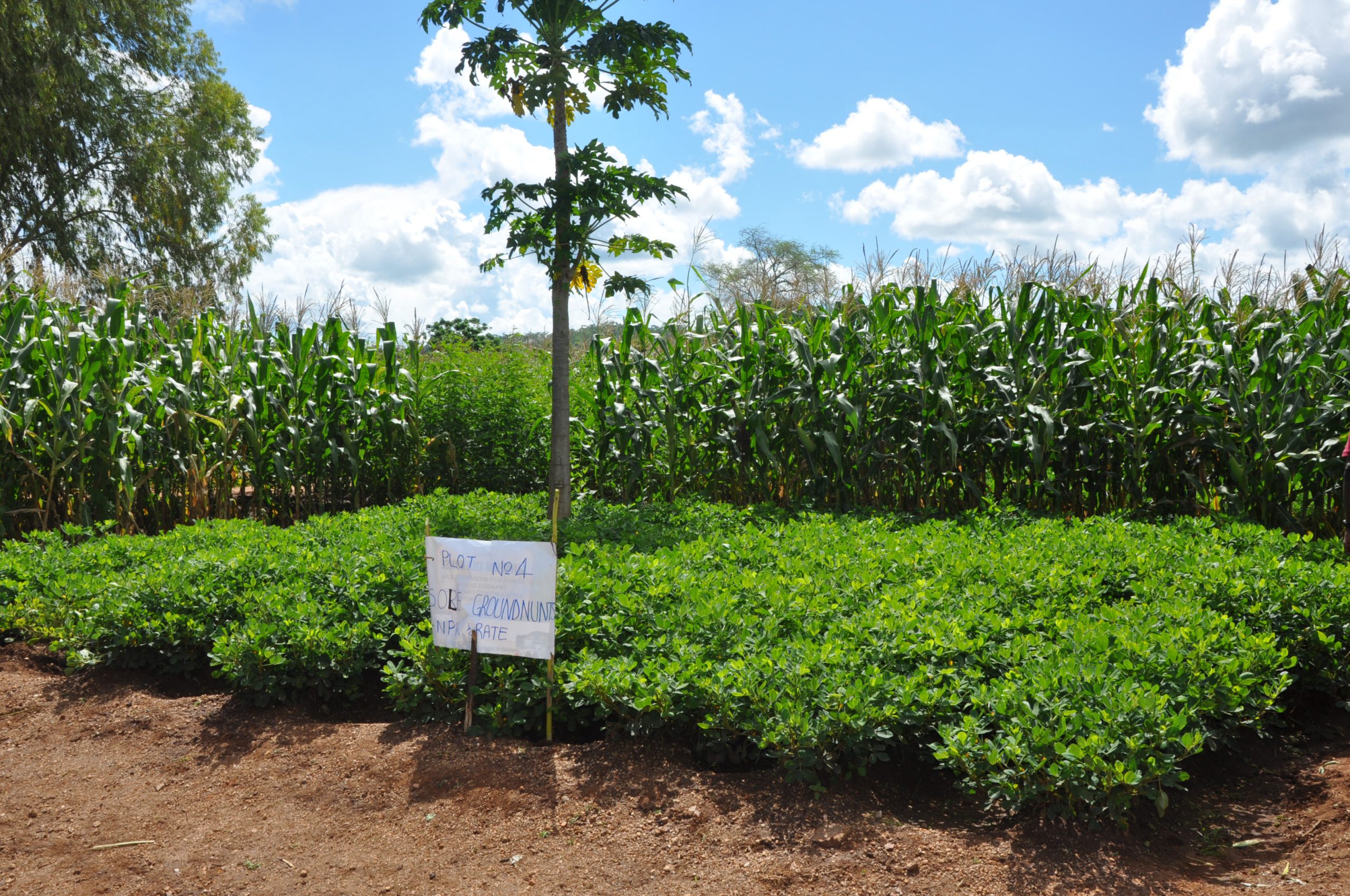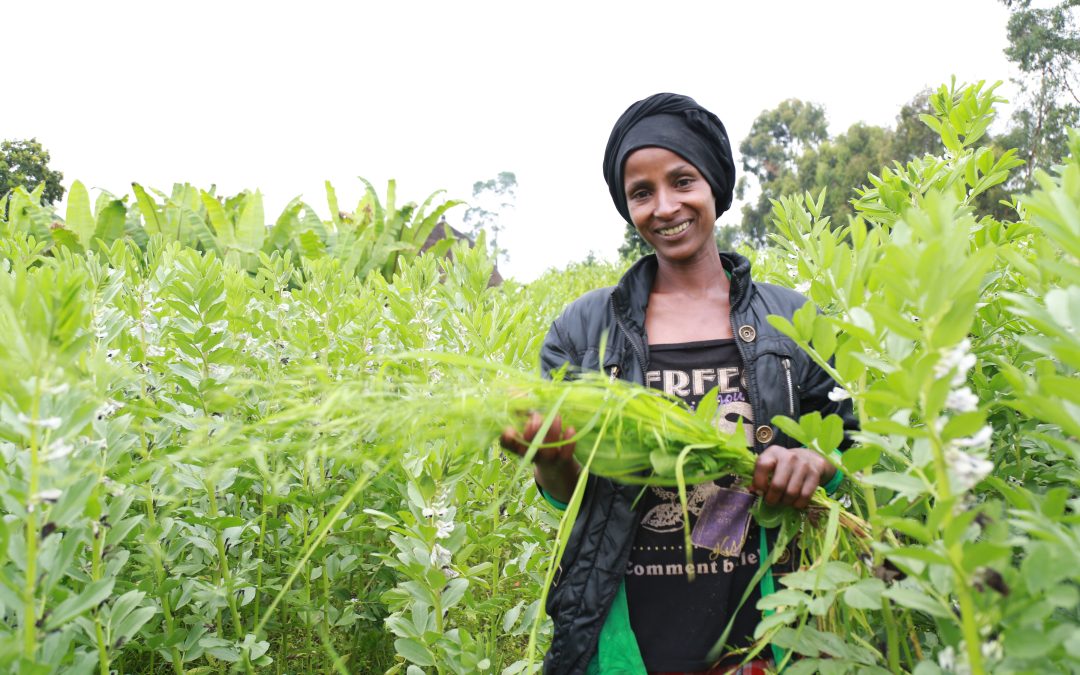The seeds of the neem tree provide natural protection against insect pests, including the legume pod borer—a pest that attacks cowpea fields and can account for up to 80% crop loss. Cowpea is the most important grain legume crop in the Sahel region, including Niger.
The USAID-funded Feed the Future Innovation Lab for Legume Systems Research, managed by Michigan State University, has established a regional project to develop innovative cowpea pest management solutions that incorporate non-synthetic pesticide options. The project includes Burkina Faso, Niger, and Nigeria.
Prof. Ibrahim Baoua from the University of Maradi and Dr Amadou Laouali from INRAN, Maradi, lead this project in Niger. In collaboration with Dr Manuele Tamò from IITA in Benin, the Principal Investigator of this project, they have worked together to design and deploy natural solutions to fight pests in the field using sustainable approaches over the last decade. These include releasing adapted biological control agents (parasitic wasps) targeting the legume pod borer and an innovative way of using neem products, which we call the neem “tea bag”. It was developed and tested with success by our Niger collaborators by establishing women-led Community Based Neem Production Units (CBNPs) where participating members have learned how to harvest the seeds of the neem and manufacture them into natural pesticide packets (picture). The packets are sold to local farmers, cooperatives, and traders.
What are the innovative aspects of the neem tea bag? This approach uses neem seeds, the kernels inside the soft-fleshed neem fruit, widely available in many rural settings in Niger. The first step is to remove the pulp from the fruit, which is usually done by soaking them overnight and crushing them by hand the next day.

Now, free from the pulp, the kernels are sun-dried and sorted to ensure a good and consistent quality product. The kernels are subsequently de-husked and ground to powder, either using the traditional mortar or processed with a small, easily transportable motorized mill purchased during the project’s initial phase. This motorized mill is now proving to be a real game-changer by allowing women participating in the CBNPs to save time and enormously reduce the drudgery of pounding the kernels in the mortar (picture).
The powder of the neem kernels is sieved and packaged at the rate of 5 (tomato paste) cups (about 250 g) into tissue bags which are machine-sewed in the community (picture). This is the neem tea bag, which borrows its name because it is soaked overnight in 5 L of water, providing a watery extract that can be sprayed on cowpea crops the next day. The neem tea bags are sealed inside small plastic bags (using a heat sealer) to keep their freshness and are properly labeled to make the product more appealing for sale. One tea bag sells between 500 and 1000 CFA (equivalent to 1 to 2 USD) and can be used to spray a surface of up to 400 m2 of cowpea, depending on the crop’s growth stage.
Currently, 29 women are participating in three CBNPs, and have produced 3988 neem tea bags and sold most of them to farmer cooperatives and NGOs. However, the cowpea farmers in their community still purchased only a small percentage.
So, why all this hassle and not just spray chemical pesticides, which are also widely available in Niger? Farmers indeed know the efficiency of chemical pesticides. But they are also becoming aware of some of the unintended side effects, such as itchy skin and eye irritations, particularly because they do not have access to personal protective equipment, either unavailable in rural settings or unaffordable. They have experienced that spraying neem products does not result in any health problems while giving similar yield outputs.
Here are some testimonies from members of the three communities:
“My knowledge in the ecological management of pests has grown, and so has the cohesion between our unit members and the producers,” says Indo Maman, a widow from the village of Danja in the Madarounfa Department who became involved in the program through the women farmer cooperative. She has used some of her earnings to pay for her grandson’s breakfast at school, along with their extra fees and school supplies.
Her main job is threshing neem grains, but Indo has big dreams. “I would like to organize advertising campaigns and market the neem tea bags on a larger scale. I dream of seeing the unit becoming a big company.”

Aicha Mahaman, 55, is from Mai Ganga village in the Mayahi Department. “My role is processing neem kernels into flour,” Aicha explains as she tends to her small herd of sheep recently expanded through her profits from neem tea bag sales.
She also shares Indo’s dream of one day building a neem processing company. “I believe cowpea producers will be ready to pay for the neem tea bag if it’s affordable, and they are well sensitized about the safety and effectiveness in reducing the population of cowpea pests.”
As president of the Farmer’s Cooperative in Serkin Hatsi village, Guidan Roumdji Department, 43-year-old Sa’a Moussa was the initiator of the women’s organization. She participates in the neem processing through packaging the product.
“The activity is profitable not only because it generates income, but I have been able to weave relationships with other villages,” says Sa’a. The fertilizer bought from her profits has increased the production of her farm. The additional income has also allowed her to purchase clothes for her grandchildren.
“I would like to see this industry grow.”
Neem tea bag production is being expanded into new communities. We are seeing a potential to create a whole biopesticide value chain, creating job opportunities for women.

